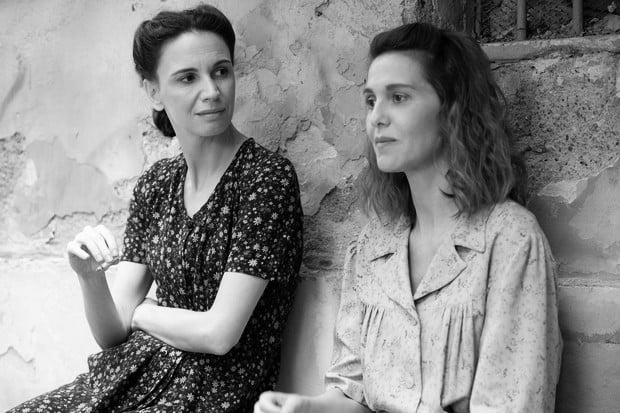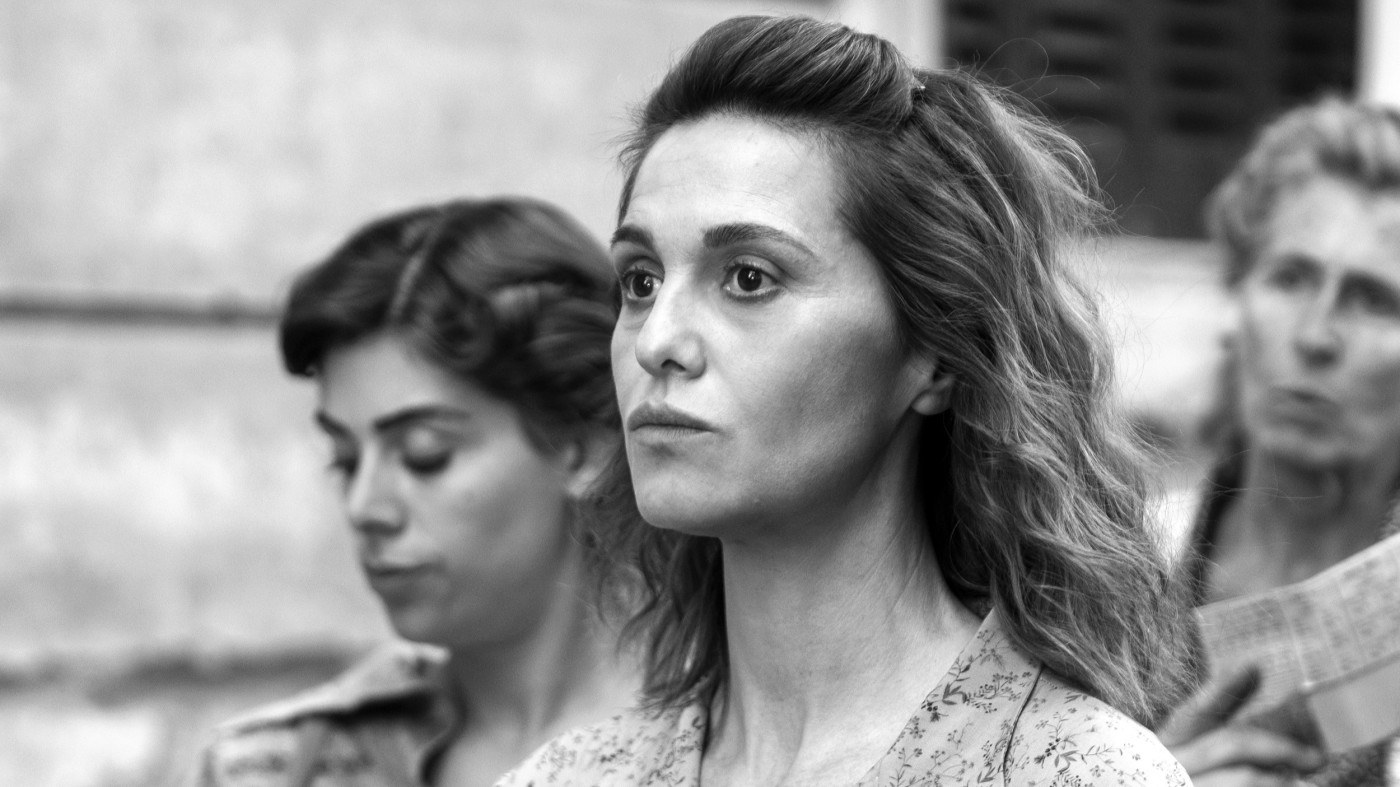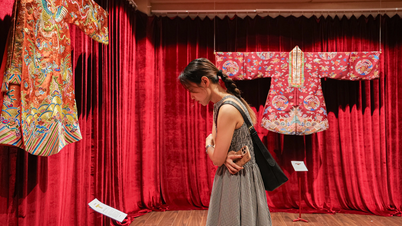The film There's Still Tomorrow is set in post-World War II Italy, and is an artistic frame about the "pain" of women in this country, carrying the director's own ideas and thoughts about violence against women.
The film opens with a shocking scene for the audience: Delia (played by Paola Cortellesi herself), wakes up next to her husband one morning, she says "Buongiorno!" (Good morning!), without saying a word, her husband slaps her painfully. Delia gets out of bed, starts a day like any other, and violence is part of her daily life.

The movie There's Still Tomorrow had a very good effect at the domestic box office this year.
The director was inspired by hearing and contemplating the daily violence against women in post-war Italy. She confided: "When I was a child, I remember my grandmother telling me a story about a woman who lived in the same yard as her, a woman like Delia, who was often abused, sometimes by her husband, sometimes by family members. What really shocked me was that such tragedies were considered completely normal. For these women, it was part of their lives. However, they always told their stories with a sometimes satirical, sometimes humorous perspective."
Paola Cortellesi's There's Still Tomorrow is a comedy that takes a direct, pointed look at patriarchy in Italy. However, the film is not simply about violence against women. The director says it is a slice of what she calls "a feminine situation" that women have lived with in their lives, rather than simply a reflection of the problem.
The work is an homage to Italian neorealist films such as Bicycle Thieves (directed by Vittorio De Sica, released in 1948) or Rome Open City (directed by Roberto Rossellini, released in 1945).
There's Still Tomorrow has a black and white frame, the aspect ratio is not fixed but changes depending on the context, some scenes use a 4:3 ratio frame (to pay homage to classic films), some scenes use a 16:9 ratio frame (ie the wide frame of modern films).

Hundreds of thousands of high school students in Italy went to see the movie There's Still Tomorrow , and the schools also made it possible for them.
But in a broader sense, There's Still Tomorrow is a political film about gender, not just artistic.
Although it is not an easy film to watch, There's Still Tomorrow has conquered domestic audiences, becoming one of the most popular films at the Italian box office this year, with a total revenue of more than 30.5 million euros (33.4 million USD). The film ranked first at the box office in this country with 4.49 million tickets sold. The film is currently ranked 6th in the list of the most popular films in the history of the Italian box office.
The film's producers say 300,000 high school students went to see There's Still Tomorrow . Schools are encouraging students to watch the film to gain a perspective on gender-based violence and to empower women in society.
Source link


![[PHOTO] Hanoi fences off demolition of "Shark Jaws" building](https://vphoto.vietnam.vn/thumb/1200x675/vietnam/resource/IMAGE/2025/5/25/1b42fe53b9574eb88f9eafd9642b5b45)
![[Photo] Welcoming ceremony for Prime Minister Pham Minh Chinh and his wife on an official visit to Malaysia](https://vphoto.vietnam.vn/thumb/1200x675/vietnam/resource/IMAGE/2025/5/25/dc30203c3ae24da3990266ec3b29bb2d)
![[Photo] Funeral of former President Tran Duc Luong in Quang Ngai](https://vphoto.vietnam.vn/thumb/1200x675/vietnam/resource/IMAGE/2025/5/25/ccf19a3d8ea7450bb9afe81731b80995)
![[Photo] French President Emmanuel Macron and his wife begin state visit to Vietnam](https://vphoto.vietnam.vn/thumb/1200x675/vietnam/resource/IMAGE/2025/5/25/03b59c7613144a35ba0f241ded642a59)
![[Photo] Ea Yieng commune settlement project abandoned](https://vphoto.vietnam.vn/thumb/1200x675/vietnam/resource/IMAGE/2025/5/25/57a8177361c24ee9885b5de1b9990b0e)




















































































Comment (0)